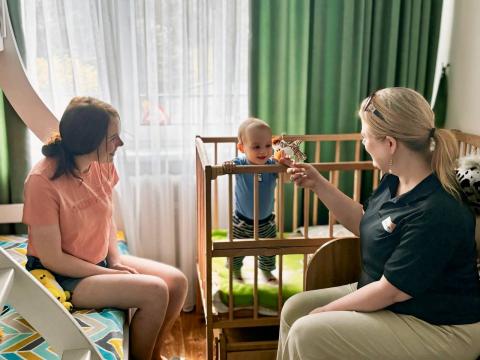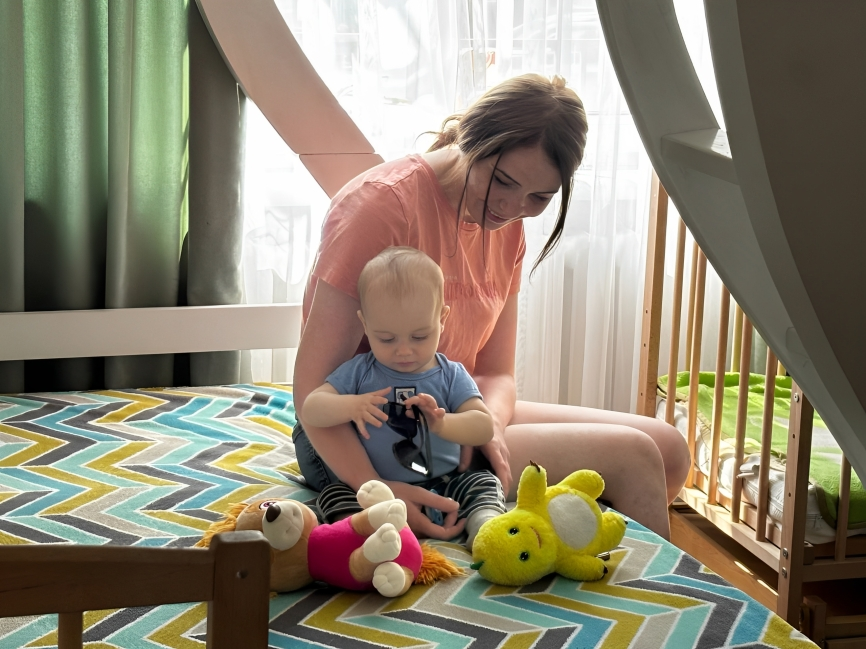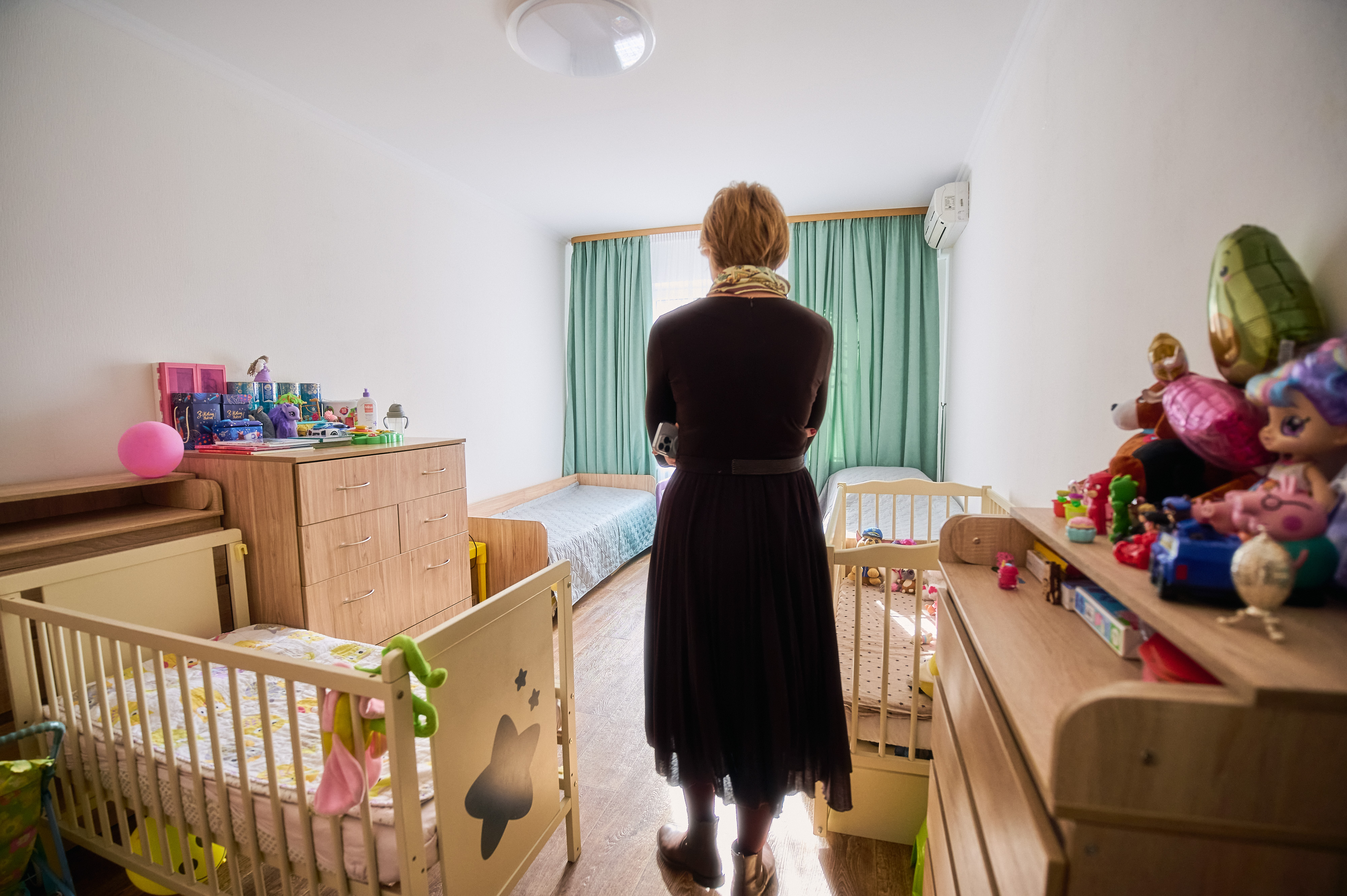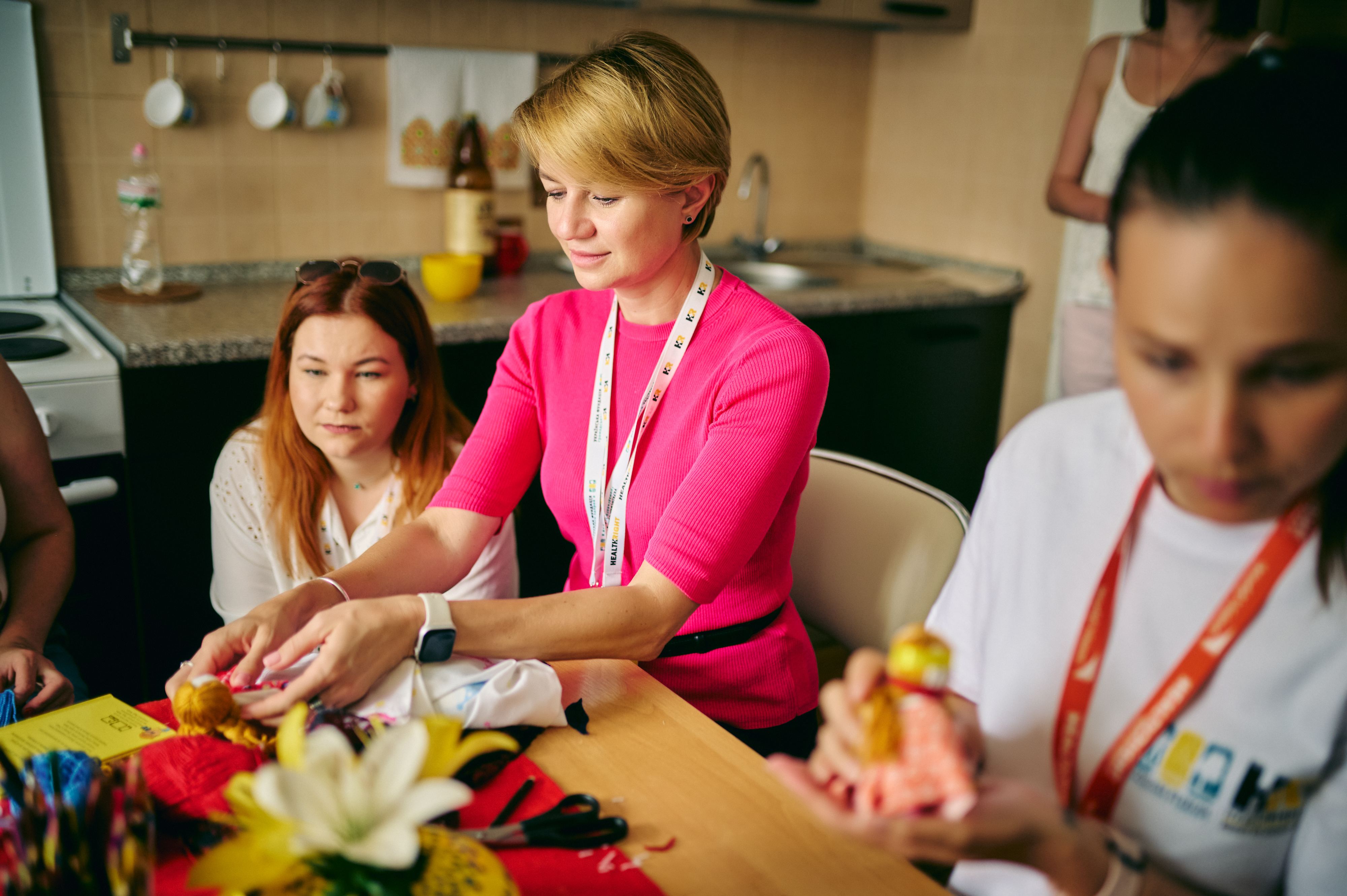Why Integrated Support Matters in Ukraine — Through Anna’s Eyes

Anna, a young mother from Kirovohrad Oblast, Ukraine, exemplifies strength in adversity. Orphaned from a young age, her only remaining family was her brother, a soldier who tragically lost his life in the war. Now, with her eight-month-old son Danylo, Anna has found a new beginning in a social apartment in Kyiv.
“Finding this place was challenging, but now I feel at home. They provide everything we need – accommodation, food, hygiene products, medicine – and support us through these difficult times,” she shared.

The ongoing conflict in Ukraine and persistent security threats continue to deeply undermine the safety, stability, and well-being of affected communities. This is especially true for those people who were already facing significant hardships prior to the outbreak of war. Many of them face even more financial struggles, and limited access to essential services such as education, healthcare, and employment, among other challenges.
Two social apartments in Kyiv and Lviv, operated by World Vision’s local partner, the Ukrainian Foundation for Public Health (UFPH), are part of the Comprehensive Support for Mothers and Children through the Halfway Houses project, supported by World Vision US.
“Social apartments are one of our most stable and systemic models of support for vulnerable women and their children.”
Halfway Houses offer vital refuge for pregnant women and mothers facing displacement, domestic violence, or hardship, especially those without legal documentation.
“The environment is calm and welcoming here, ideal for my child’s well-being. The staff adapt to the interests and needs of both children and mothers, whether it's scheduling appointments with a psychologist or arranging other activities. Their individual approach ensures that each child's routine and well-being are prioritised, making this a safe and supportive space for my family,” shares Anna.
Each apartment houses up to six women and their young children, offering a safe, warm space. Services include psychological, social, and legal support, along with safe shelter for women and children, healthcare access, and educational activities for children. Social workers also assist with employment and economic empowerment to help vulnerable families rebuild their lives and achieve stability.

“Social apartments are one of our most stable and systemic models of support for vulnerable women and their children,” shares Halyna Skipalska, Executive Director of UFPH.
“With support from dedicated partners, we have gained essential funding, expertise, and training to improve our capacity to provide sustainable, compassionate aid. Our team continually learns to better understand those we serve, prioritising the sustainability and expansion of Halfway Houses to reach more vulnerable communities,” she adds.

Each day at the Halfway House brings a simple and comforting routine for Anna and Danylo. Living in the apartment, they built a warm, friendly atmosphere with the other mothers – sharing conversations, offering support, and creating a sense of community that helps them all navigate their daily lives.
“My past has taught me hard lessons, and now I am focused on building a better future for myself and my baby – aiming to find a job and secure an apartment.”
Anna dreams of becoming a hairdresser, hoping to build a better life. As soon as Danylo is enrolled in kindergarten, it will be easier for her to find work. She stays hopeful, knowing this is a step toward a brighter future for her and her son.
“My past has taught me hard lessons, and now I am focused on building a better future for myself and my baby – aiming to find a job and secure an apartment,” she shared.
Between November 2024 and July 2025, over 80 women and children benefited from more than 6,000 social service interventions through this project. This included individual consultations with social workers, engaging group activities, and referrals to specialised professionals and organisations to ensure comprehensive support.
As of July 2025, World Vision reached approximately 1,8M individuals through enhanced social protection programmes.
Story by Anastasiia Haviuk, Communications Officer I Photos by Ukrainian Foundation for Public Health